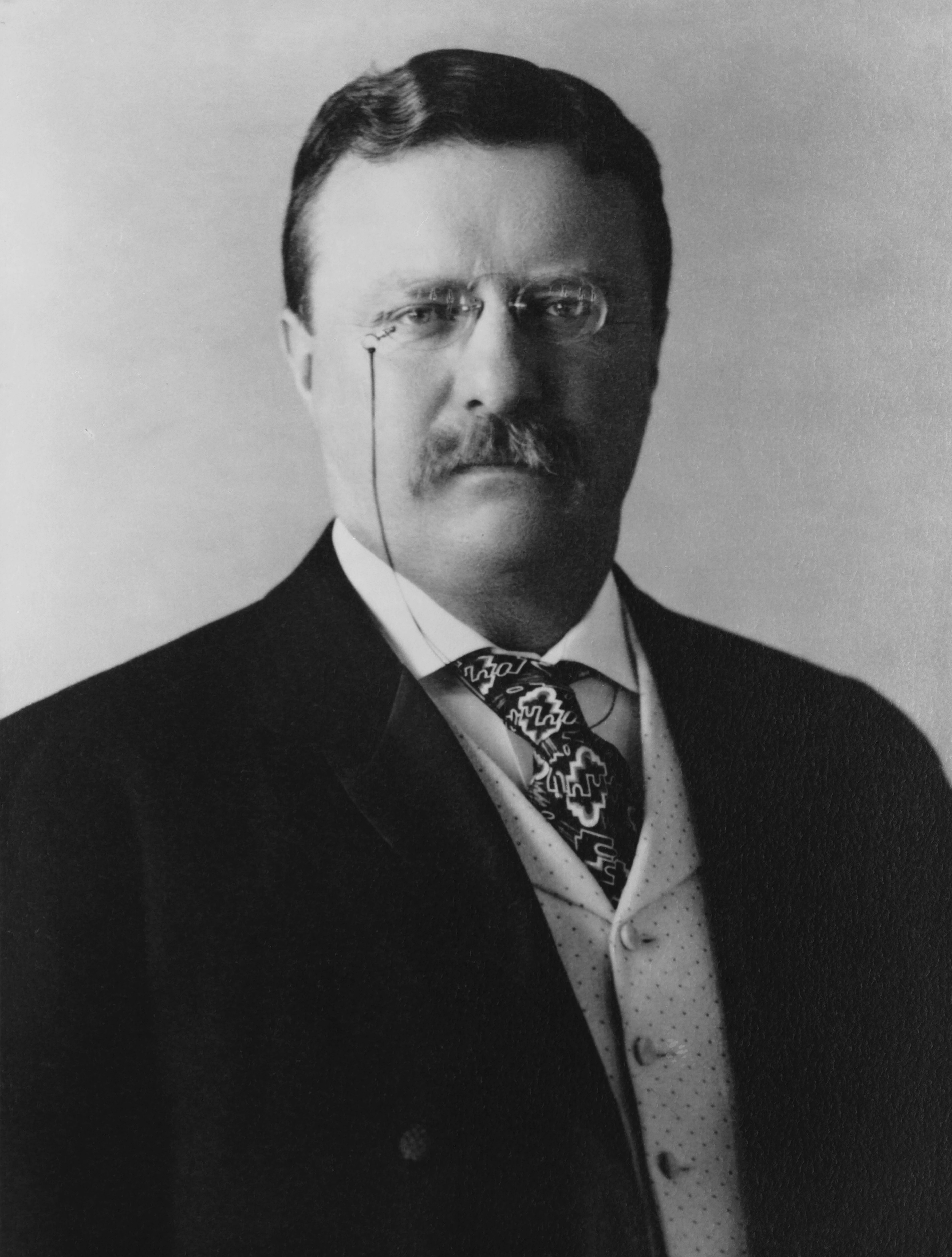Theodore Roosevelt frasi celebri
Theodore Roosevelt Frasi e Citazioni
Origine: Citato in Marco Pastonesi e Giorgio Terruzzi, Palla lunga e pedalare, Dalai Editore, 1992, p. 83. ISBN 88-8598-826-2
Origine: 1901, pp. 246-47; citato in Losurdo 2005, p. 299.
“Nessun trionfo di pace è più esaltante di un trionfo di guerra.”
Origine: Citato in Focus, n. 85, p. 180.
parlando di come stroncare scioperi e conflitti sociali: citato in Hofstadter 1960, p. 216; citato in Losurdo 2005, p. 323
Theodore Roosevelt: Frasi in inglese
1900s, "In God we Trust" letter (1907)
1900s, A Square Deal (1903)
"Democratic Ideals" in The Outlook (15 November 1913) https://books.google.com/books?id=1LpOAQAAMAAJ&pg=PA589
1910s
1910s, Address to the Knights of Columbus (1915)
“I can be President of the United States, or I can control Alice. I cannot possibly do both.”
Response when a dignitary asked if he could better control his daughter, as quoted in Hail to the Chiefs : My Life and Times with Six Presidents (1970) by Ruth Shick Montgomery, and TIME magazine (3 March 1980) http://www.time.com/time/magazine/article/0,9171,950286,00.html?promoid=googlep
1900s
Talk to schoolchildren in Oyster Bay, Christmastime (1898), as quoted in The Bully Pulpit : A Teddy Roosevelt Book of Quotations (2002) by H. Paul Jeffers, p. 22
1890s
1900s, Speak softly and carry a big stick (1901)
1900s, The Strenuous Life: Essays and Addresses (1900), National Duties
Contesto: Right here let me make as vigorous a plea as I know how in favor of saying nothing that we do not mean, and of acting without hesitation up to whatever we say. A good many of you are probably acquainted with the old proverb: "Speak softly and carry a big stick—you will go far." If a man continually blusters, if he lacks civility, a big stick will not save him from trouble; and neither will speaking softly avail, if back of the softness there does not lie strength, power.
1910s, The Progressives, Past and Present (1910)
Origine: 1910s, Theodore Roosevelt — An Autobiography (1913), Ch. XI : The Natural Resources of the Nation, p. 386
1900s, The Strenuous Life: Essays and Addresses (1900), The Strenuous Life
1910s, The New Nationalism (1910)
1900s, The Strenuous Life: Essays and Addresses (1900), The Strenuous Life
Address at Mechanics' Pavilion San Francisco May 13 1903 books.google.de http://books.google.de/books?id=zSJNPOphC_MC&pg=PA98
Quoted in The Audacity of Hope (2006) by Barack Obama, p. 282 as follows: The United States of America has not the option as to whether it will or it will not play a great part in the world … It must play a great part. All that it can decide is whether it will play that part well or badly.
1910s
1910s, The New Nationalism (1910)
1900s, First Annual Message to Congress (1901)
1910s, The Progressives, Past and Present (1910)
1910s, The New Nationalism (1910)
Variante: The true friend of property, the true conservative, is he who insists that property shall be the servant and not the master of the commonwealth; who insists that the creature of man’s making shall be the servant and not the master of the man who made it. The citizens of the United States must effectively control the mighty commercial forces which they have called into being.
1900s, Letter to Winfield T. Durbin (1903)
1910s, The Progressives, Past and Present (1910)
1900s, Letter to Winfield T. Durbin (1903)
1910s, The Progressives, Past and Present (1910)
1900s, Speak softly and carry a big stick (1901)
Variante: Let us make it evident that we intend to do justice. Then let us make it equally evident that we will not tolerate injustice being done us in return. Let us further make it evident that we use no words which we are not which prepared to back up with deeds, and that while our speech is always moderate, we are ready and willing to make it good. Such an attitude will be the surest possible guarantee of that self-respecting peace, the attainment of which is and must ever be the prime aim of a self-governing people.
"Rural Life", in The Outlook (27 August 1910), republished in American Problems (vol. 16 of The Works of Theodore Roosevelt, national ed., 1926), chapter 20, p. 146
1910s
1910s, The Progressives, Past and Present (1910)
Origine: 1910s, Theodore Roosevelt — An Autobiography (1913), Ch. VII : The War of American and the Unready
1910s, The Progressives, Past and Present (1910)
